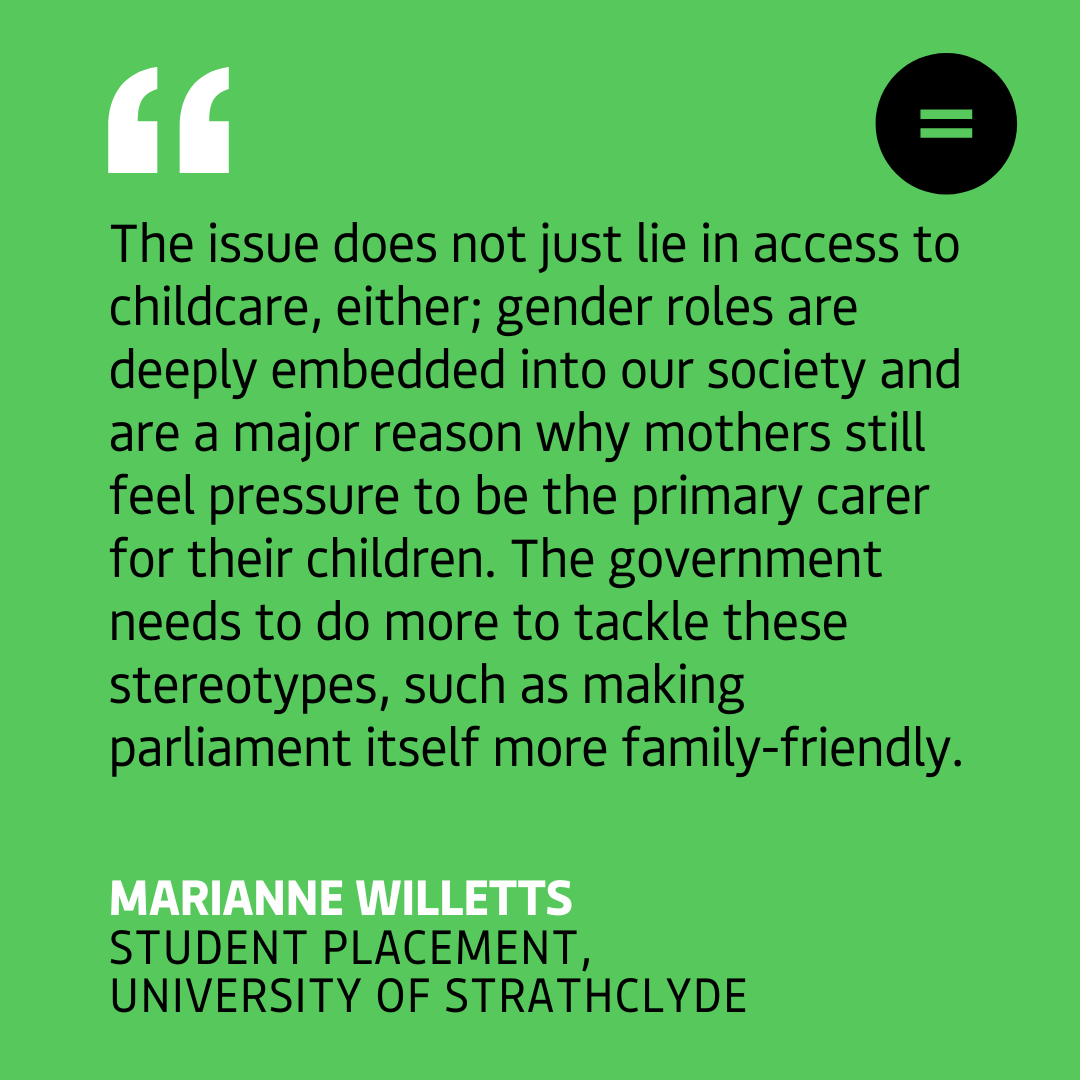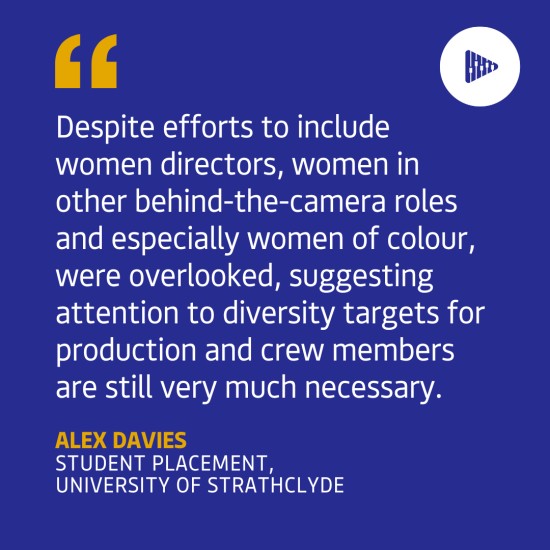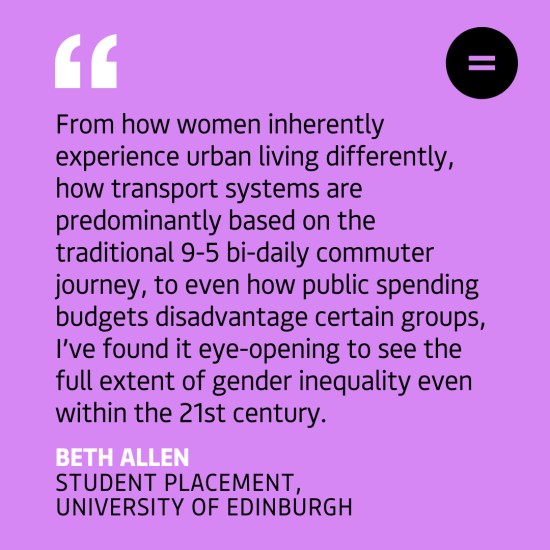Engender blog
All of Engender’s latest news. Reports, reviews, books, articles, and information from across Scotland’s women’s sector.
We would love to hear from other feminists around Scotland. Check out our guidelines for more information on how you can blog for us.
GUEST POST: The Cost of Childcare Crisis
Engender has recently hosted student placements from the MSc in Social Research at the University of Edinburgh and the University of Strathclyde Applied Gender Studies and Research Methods course. As part of their research outputs, the students have produced a series of blogs.
In this post, Marianne looks at how the cost of living crisis continues to disproportionately impact women, and how this is compounded by women's unpaid work and childcare responsibilities.

Milk, bread, electricity, petrol and even crème eggs: the cost of living crisis has seen drastic surges in prices of just about every household good. Everyone’s purses are feeling the strain, and heads are turning to the government to aid the struggling population.
Often unacknowledged in these debates, however, is the evidence that women are being disproportionately affected by the cost of living crisis over men. The economic instability of the country is affecting the lowest-paid of the population, of which women make up the majority, with 69% of low-paid and insecure jobs being held by women. Engender released their Women & The Cost of Living report in November 2022 that highlighted that this disproportion is related to the long-standing inequalities that ensure women make up the highest percentage of low-paid jobs, such as those in the care sector and unpaid care and domestic jobs at home. Based on this perhaps unsurprising revelation, Engender made a series of suggestions for the Scottish Parliament in order to tackle these inequalities.
GUEST POST: Do we need diversity quotas in film?
Engender and the Equal Media and Culture Centre for Scotland have hosted student placements from the MSc in Social Research at the University of Edinburgh and the University of Strathclyde Applied Gender Studies and Research Methods course. As part of their research outputs, the students have produced a series of blogs.
In this post, Alex looks at why there's still work to do to ensure diversity behind the camera in Scotland's film industry.

The Glasgow Film Festival (GFF) is the UK’s third-largest film festival and one of Scotland’s biggest annual cultural events.
The UK Government has recognised its “significant contribution” to Scottish culture and to the careers of new filmmakers through its Audience Award. The festival’s organisers pick the nominees, but the winner is democratically elected by film-goers. Since the nominees are specifically chosen to nurture the careers of first or second-time directors, the award is a great site to foster a more diverse film industry in Scotland.
In recent years, criticism of the Oscars and BAFTA nominations drew attention to the underrepresentation of women and people of colour in the film sector. Research has demonstrated stark gender and racial disparities behind the scenes of the UK’s film industry. The Calling the Shots project studied British films produced between 2003 and 2015, finding that only 13% of their directors, 20% of their screenwriters and 27% of their producers were women. Statistics for women of colour were even worse, as 90% of the films examined did not employ any women of colour at all.
The Glasgow Film Festival’s director, Allison Gardner, has overseen GFF to go from strength to strength in terms of inclusivity, especially in its recognition of women filmmakers. In 2020, films directed by women opened and closed the festival for the first time and in 2022, 40% of all the films at GFF 2022 were directed by women.
Cinema for All?
Gardner has publicly voiced support for greater inclusivity in film, and has acknowledged that “We need to change those structures,”. Yet she has also asserted that the festival’s inclusive programming is not the result of quotas or targets but of a desire to maintain the “broadest possible appeal” to audiences. In fact, the Audience Award has consistently featured as many (if not more) women directors as men in almost every year of its history (see below), even before developments like 2017’s “Me Too” movement drew attention to gender inequality in the industry.
GUEST POST: Reflections of the Student Placement Experience - An Insight into the Women’s Sector in Scotland
Today we're publishing the next in a series of blogs from recent student placements Engender has hosted from the MSc in Social Research at the University of Edinburgh and the University of Strathclyde Applied Gender Studies and Research Methods course.
In this post, Beth reflects on her experience of undertaking a research placement and the importance of considering urban planning policies through a feminist lens.

During the summer semester of my MSc in Social Research at the University of Edinburgh, I have been fortunate enough to experience completing my dissertation as a placement student with Engender. This placement has been invaluable, and I wanted to take this opportunity to reflect on this and maybe inspire others to gain experience of working within the women’s sector.
Call for expert working group on decriminalisation of abortion accepted by Scottish Government
Abortion care in Scotland is in urgent need of modernisation, with the current framework acting as a drag on services and as a barrier to timely access. In June we wrote to the First Minister on abortion rights, alongside 16 other equalities, abortion and health organisations. In the letter, we welcomed the commitments made on the leadership campaign trail and called for creation of an expert working group on decriminalisation of abortion.
We are delighted that this suggestion has been accepted by Scottish Government. We now look forward to sharing how women in Scotland can feed into the review of current structures, and to Humza Yousaf’s commitment on decriminalisation being set out in this year’s Programme for Government. Read the letter and see a list of signatories below.

Dear First Minister,
We hope this letter finds you well and congratulate you on your appointment as First Minister of Scotland.
During your leadership campaign, we welcomed your commitments to protecting and advancing abortion rights. The implementation of nationwide buffer zones, consistent provision of abortion care for all that need it, and removal of abortion from the criminal justice system are vital elements of modern abortion healthcare in Scotland. We also need action to tackle growing capacity gaps across services, to ensure equality of access to person-centred abortion care, and to ensure that NHS staff are working in fully equipped and well-resourced services.
Steady progress has been made regarding abortion in recent years. The NHS Scottish Abortion Care Providers Group has worked closely with Scottish Government to advance commitments set out in the Women’s Health Plan, including early medical abortion at home, telemedical care, and improved provision of mid-term abortions across the country.
We now look forward to further progress under your leadership, and to working with the Scottish Government and Women’s Health Champion towards delivery of your commitments. We are aware that Scottish Government already has regular engagement with the NHS Scottish Abortion Care Providers Group, which will, of course, continue to be invaluable. Building on your commitment to move forward decriminalisation of abortion, we believe that an expert working group would be of assistance to Scottish Government Ministers on this topic, and would welcome the opportunity to discuss this further.
Two-child benefits cap confirmed to stay if Labour Party win next UK General Election
This week, we join many other civil society organisations in the UK in expressing our concern and deep disappointment that Sir Keir Starmer has confirmed the UK Labour Party will keep the two-child benefits cap policy if successful at the next General Election. This policy, alongside many others introduced by the Conservative UK Government in so-called ‘welfare reforms’, is discriminatory and misogynistic- worsening gender inequality by pushing millions of families into poverty. It is a political choice to penalise the most vulnerable in our society and alongside organisations such CPAG, Action for Children and others, we will also be urging the UK Labour Party to reconsider their position.
Also known as the ‘family cap’, the two-child benefits cap tells families who rely on social security for their well-being that help will only be provided if you have a maximum of two children. This ‘family cap’ will not apply if a third or subsequent child is conceived as a result of rape. Known as the ‘rape clause’, this policy forces women to disclose that they are a victim of rape at a time and in a context not of her own choosing. On 6 April 2017, the rape clause and two-child limit came into effect without any parliamentary vote, requiring women to fill in an eight-page form to prove they have been raped.
We have consistently worked alongside the wider women’s sector to campaign against this cruel and discriminatory social security policy and highlight how such a policy amounts to state intrusion into women’s reproductive decisions. We know that ‘family cap’ policies also adversely affect poorer women, women who are more reliant on social security due to disability and particularly women from communities who traditionally have larger families. This includes refugee women and some women from ethnic minority backgrounds.
Downloads
 Engender Briefing: Pension Credit Entitlement Changes
From 15 May 2019, new changes will be introduced which will require couples where one partner has reached state pension age and one has not (‘mixed age couples’) to claim universal credit (UC) instead of Pension Credit.
Engender Briefing: Pension Credit Entitlement Changes
From 15 May 2019, new changes will be introduced which will require couples where one partner has reached state pension age and one has not (‘mixed age couples’) to claim universal credit (UC) instead of Pension Credit.
 Engender Parliamentary Briefing: Condemnation of Misogyny, Racism, Harassment and Sexism
Engender welcomes this Scottish Parliament Debate on Condemnation of Misogyny, Racism, Harassment and Sexism and the opportunity to raise awareness of the ways in which women in Scotland’s inequality contributes to gender-based violence.
Engender Parliamentary Briefing: Condemnation of Misogyny, Racism, Harassment and Sexism
Engender welcomes this Scottish Parliament Debate on Condemnation of Misogyny, Racism, Harassment and Sexism and the opportunity to raise awareness of the ways in which women in Scotland’s inequality contributes to gender-based violence.
 Gender Matters in Social Security: Individual Payments of Universal Credit
A paper calling on the Scottish Government to automatically split payments of Universal Credit between couples, once this power is devolved to the Scottish Parliament.
Gender Matters in Social Security: Individual Payments of Universal Credit
A paper calling on the Scottish Government to automatically split payments of Universal Credit between couples, once this power is devolved to the Scottish Parliament.
 Gender Matters Manifesto: Twenty for 2016
This manifesto sets out measures that, with political will, can be taken over the next parliamentary term in pursuit of these goals.
Gender Matters Manifesto: Twenty for 2016
This manifesto sets out measures that, with political will, can be taken over the next parliamentary term in pursuit of these goals.
 Scottish NGO Briefing for UN Special Rapporteur on Violence Against Women
Joint briefing paper for the UN Rapporteur on Violence Against Women.
Scottish NGO Briefing for UN Special Rapporteur on Violence Against Women
Joint briefing paper for the UN Rapporteur on Violence Against Women.

Newsletter
Sign up to receive our newsletter here:
Sign up to our mailing list
Receive key feminist updates direct to your inbox: